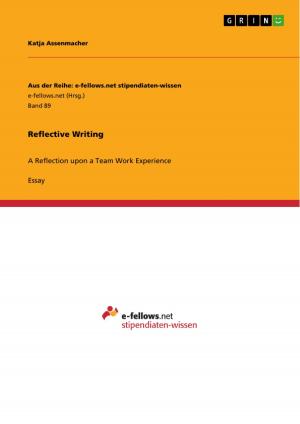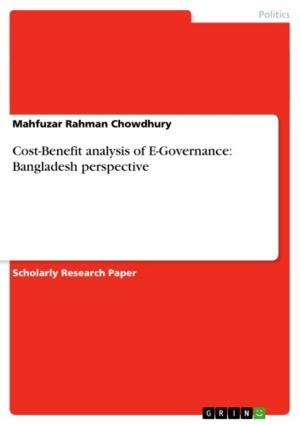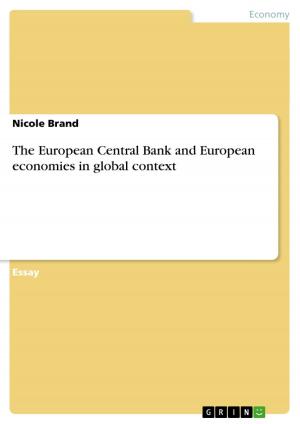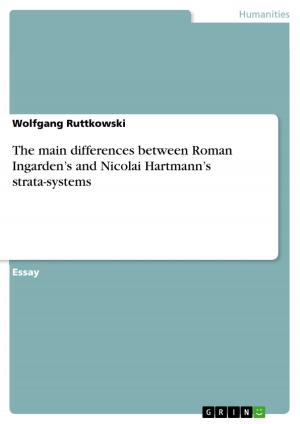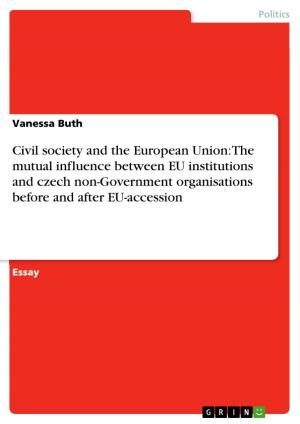Aid and conditionality: Enhancing good governance in sub-Saharan Africa
Nonfiction, Social & Cultural Studies, Political Science, International, International Relations| Author: | Fidelis Etah Ewane | ISBN: | 9783640187164 |
| Publisher: | GRIN Publishing | Publication: | October 13, 2008 |
| Imprint: | GRIN Publishing | Language: | English |
| Author: | Fidelis Etah Ewane |
| ISBN: | 9783640187164 |
| Publisher: | GRIN Publishing |
| Publication: | October 13, 2008 |
| Imprint: | GRIN Publishing |
| Language: | English |
Master's Thesis from the year 2004 in the subject Politics - International Politics - Region: Africa, grade: Merit, University of Kent, 55 entries in the bibliography, language: English, abstract: The persistent low state of development in sub-Saharan Africa has become a global challenge. Academics and think-tanks continue to search for solutions to Africa's longstanding problems. Studies have proven that the entire region is essentially confronted with a crisis of social structures and government and the fragmentation of authority is the hallmark of this crisis (Van Hoyweghen & Smis, 2002:575). Over twenty-four million people are infected with AIDS/HIV, growth of per capita income is low and civil wars have killed millions in Rwanda, Burundi, Liberia, Sierra Leone and the Democratic Republic of Congo. African governments owe billions of dollars in debt (Polanyi, 2003:563). This irreversible trend brought the good governance discourse in development cooperation between the donors and African counterparts. The purpose of this paper is to examine how the concept of good governance is being implemented in Africa. For clarity purposes, the work is limited to the analysis of the efforts being made by the European Union (EU) and the World Bank in assisting African countries to implement good governance. This choice is based on the fact that the EU and World Bank are the main multilateral aid donors and development partners of the region. It argues that good governance enhances transparency in the use of development aid, helps to reduce poverty and spurs development, and that it is necessary to foster institutional reforms (causative argument). The paper further argues that implementing good governance will improve the use of political power by leaders and help in the consolidation of peace (normative argument). Achieving global governance is a main issue in international politics today. Enforcing good governance is a must if Africa has to be fully integrated into the process of globalisation. And for globalisation to be complete and meaningful, poverty in Africa as well as other parts of the world must be eradicated. No amount of foreign aid can lead to meaningful development without effective governance. The poor state of development in Africa produces a backlash that has a global reach. Europe for example is facing a huge influx of migrants from Africa in search for greener pastures. Eradicating poverty is therefore a global challenge as the world becomes smaller. The fight against poverty and underdevelopment has given rise to a greater inter-state relationship in which powerful institutions play a decisive role.
Master's Thesis from the year 2004 in the subject Politics - International Politics - Region: Africa, grade: Merit, University of Kent, 55 entries in the bibliography, language: English, abstract: The persistent low state of development in sub-Saharan Africa has become a global challenge. Academics and think-tanks continue to search for solutions to Africa's longstanding problems. Studies have proven that the entire region is essentially confronted with a crisis of social structures and government and the fragmentation of authority is the hallmark of this crisis (Van Hoyweghen & Smis, 2002:575). Over twenty-four million people are infected with AIDS/HIV, growth of per capita income is low and civil wars have killed millions in Rwanda, Burundi, Liberia, Sierra Leone and the Democratic Republic of Congo. African governments owe billions of dollars in debt (Polanyi, 2003:563). This irreversible trend brought the good governance discourse in development cooperation between the donors and African counterparts. The purpose of this paper is to examine how the concept of good governance is being implemented in Africa. For clarity purposes, the work is limited to the analysis of the efforts being made by the European Union (EU) and the World Bank in assisting African countries to implement good governance. This choice is based on the fact that the EU and World Bank are the main multilateral aid donors and development partners of the region. It argues that good governance enhances transparency in the use of development aid, helps to reduce poverty and spurs development, and that it is necessary to foster institutional reforms (causative argument). The paper further argues that implementing good governance will improve the use of political power by leaders and help in the consolidation of peace (normative argument). Achieving global governance is a main issue in international politics today. Enforcing good governance is a must if Africa has to be fully integrated into the process of globalisation. And for globalisation to be complete and meaningful, poverty in Africa as well as other parts of the world must be eradicated. No amount of foreign aid can lead to meaningful development without effective governance. The poor state of development in Africa produces a backlash that has a global reach. Europe for example is facing a huge influx of migrants from Africa in search for greener pastures. Eradicating poverty is therefore a global challenge as the world becomes smaller. The fight against poverty and underdevelopment has given rise to a greater inter-state relationship in which powerful institutions play a decisive role.

